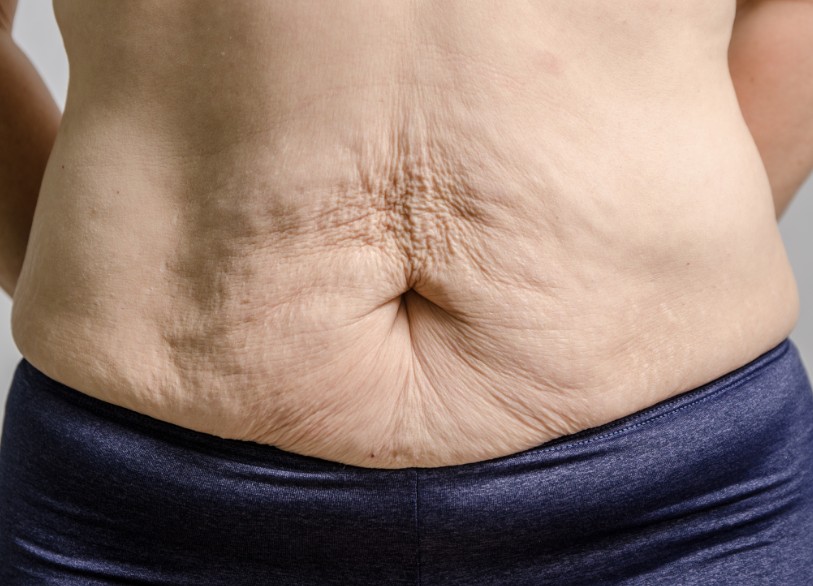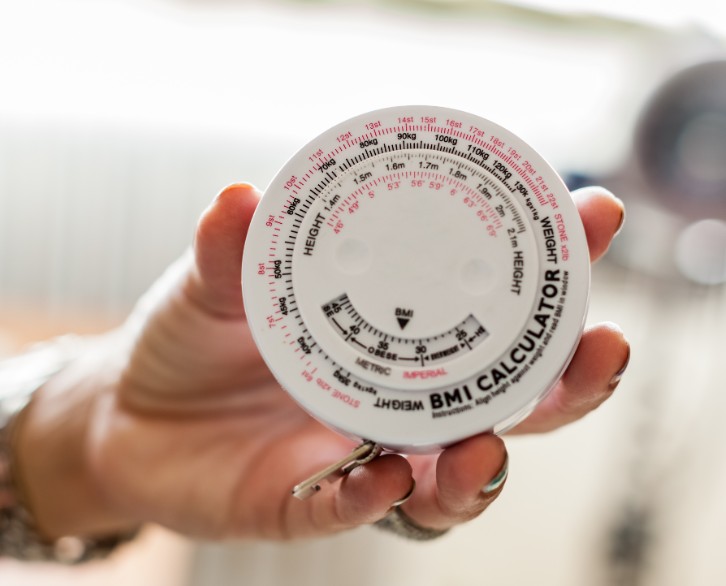
More than a quarter of a million patients underwent bariatric surgery of one type or another in 2017, according to the American Society for Metabolic and Bariatric Surgery (ASMBS). In general, it is a safe and effective protocol that involves a structural change to the digestive system – regardless of which procedure you undergo – and major lifestyle changes afterward. In addition to enhancing significant weight loss, it can positively affect other aspects of an individual’s health, including cardiovascular disease, sleep apnea, joint pain relief, depression, and type 2 diabetes.
As you research the various types of surgery and options, you’ll be learning about possible side effects and complications that some patients experience. Some are relatively minor and ease over time; others are more serious or last longer. Some side effects are common with any surgery; others are more common to bariatric procedures. In general, the less invasive the procedure, the fewer the complications. Here’s a guide to side effects and complications that can occur, and why they sometimes do.
Bariatric Surgery Side Effects
Nausea and Vomiting
Anesthesia and surgery of any kind can cause nausea and vomiting during recovery. Beyond the initial recovery period, remember that you are re-learning what and how to eat. Liquids and later small amounts of food at the prescribed consistency is all you’ll be able to tolerate at first.
If vomiting continues, you’ll want to contact your doctor.
Constipation
Pain medication after surgery often causes constipation. Also, the function of your intestines stops during surgery and you take in much less food afterward, so it takes a while to get things to a new normal. Your doctor will most likely prescribe a stool softener. Constipation is more common after gastric bypass and gastric banding and less likely with duodenal switch surgery.
Acid Reflux
Acid reflux is not uncommon in overweight people. If you are having the gastric bypass procedure, it may resolve your issues. However, a sleeve gastrectomy can sometimes worsen the problem. Medication can help. Keep your doctor in the loop; acid reflux after surgery can indicate a hiatal hernia or a twisted sleeve.
Stomach Pain
Abdominal pain is a common side effect of gastric bypass surgery; it can be caused by everything from overeating, eating too quickly, or an ulcer to irritable bowel syndrome or a hernia. Most pain resolves before the six-month mark.
Trouble Swallowing
This is also called dysphagia and can be common after any surgery that causes digestive restriction. It can be caused by eating too fast or not chewing well enough, which means the food backs up into the esophagus and you feel pressure or tightness. After gastric bypass, it may be present for six months and most severe 4-6 weeks after surgery. After gastric banding, it may happen each time the band is tightened.
Wound Infection
This can happen with any type of surgery; symptoms include tenderness, warmth and redness around the site, and possible drainage from the wound. Antibiotics are typically prescribed.
Ulcers
Ulcers make up as much as many as half of the post-op complications after Roux-en-Y gastric bypass surgery. They are thought to be caused by a high production of gastric acid. Patients at higher risk include those who smoke, use alcohol, don’t adhere to their eating protocols, have large gastric pouches (through creation or stretching over time), or whose staple- or suture-line suffers a breakdown.
To prevent or minimize the risk of such ulcers, proton pump inhibitors (medicines that block acid) are often prescribed.
Possible Post-Op Complications of Bariatric Surgery
Gastrointestinal Leaking
Also called anastomosis, this rare complication can happen where sections of the stomach or small intestine have been sutured or stapled together to form new connections in a gastric bypass or sleeve gastrectomy. Digestive fluid or bits of food leak outside of their proper channels.
Ulcers, scarring or fistulas (a rare complication) can develop long-term. Symptoms can include rapid heartbeat, abdominal pain, fever, nausea and vomiting. A contrast dye scan is often used to diagnose anastomosis.
Dumping Syndrome
As bariatric surgery limits the size of the working stomach, when too much food is eaten – especially simple carbohydrates – it can spill directly into the small intestine, causing too much fluid and/or sugar to move there. This is called dumping syndrome and is a gastric bypass side effect.
It can result in nausea, vomiting, diarrhea and abdominal cramps. It can also raise the body’s blood glucose level and increase its release of insulin, which can lead to hypoglycemia.
Hypoglycemia
Because patients are more insulin-sensitive after gastric bypass surgery, some develop hypoglycemia in the months to years after their procedures. Symptoms can include sweating, seizures, dizziness, shaking, and elevated heart rate. Treatment can include diet modification and medication.
Chronic Diarrhea
Also known as fecal incontinence, this side effect affects both quality of life and absorption of nutrition. People who are obese typically have a higher rate of diarrhea even before surgery, and the post-op changes in diet and structure of the intestines all play a part. This happens more often after gastric bypass and sleeve gastrectomy.
Bowel Obstruction
In various studies, between 3 percent and 9 percent of gastric bypass patients suffered small bowel obstruction; it occurred less often after open surgery than it did in laparoscopic surgery. The condition can be related to an internal hernia or scar tissue adhesions; it can be a nuisance or a serious condition requiring additional surgery.
Gallstones
Being overweight – and losing weight quickly – can both contribute to the development of gallstones, which means weight-loss surgery patients increase their risk. Some reports say as many as half of gastric-bypass patients ultimately report gallstones; rates are lower for gastric sleeve or lap-banding procedures. Of those, some will need surgery to remove their gallbladder.
Hernias
Some gastric surgery patients develop internal hernias, which are weak spots in the wall of the stomach or intestines. They’re associated more with Roux-en-Y gastric bypass than with other procedures. They can cause pain, infection and internal scar tissue, and may require additional surgery to repair.
Nutritional Deficiencies
After any bariatric surgery, the physical amount of food and the amount of calories the body absorbs is severely limited, which in turn limits the amount of nutrients available to absorb. Medical conditions like anemia, osteoporosis and malnutrition can result without proper intake of nutrients, vitamins and supplements.
Death
As with any surgery, mortality can occur, resulting from complications of surgery and/or risk factors of the patients. In a 2012 article combining statistics from several research studies, the American Society for Metabolic & Bariatric Surgery compared the mortality rates of nearly 270,000 gastric bypass, sleeve gastrectomy and gastric banding procedures. The 30-day mortality rate for gastric bypass was 0.14 percent, for sleeve gastrectomy 0.08 percent, and gastric banding 0.03 percent.
Post-Op Care at Soma Weight Loss Surgery

Your surgical procedure is really only the beginning of your journey. Proper post-op care is a must for healing and for the journey forward, as you lose weight, learn to eat differently, accommodate your body’s new nutritional needs and adapt to a new lifestyle around food and activity.
At Soma Weight Loss, our relationship with patients doesn’t end after you’ve had your weight loss surgery. We are dedicated to helping you heal and maintain your weight loss after surgery. If you have questions about bariatric surgery or want to schedule a free consultation with Dr. Naim, contact Soma Weight Loss.




